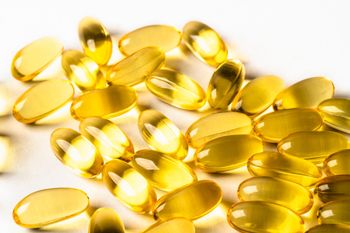
New Meta-Analysis: Omega-3 Lowers Blood Pressure
The meta-analysis is the first to include a study base this broad-70 randomized controlled trials.
Omega-3 fatty acids DHA and EPA lower blood pressure, according to a new meta-analysis published in the
“Results from the present meta-analysis are consistent with findings from earlier meta-analyses,” says Harry Rice, PhD, GOED’s vice president of regulatory and scientific affairs. “What's unique about the present meta-analysis is the inclusion criteria resulted in a much more extensive range of studies.”
The meta-analysis encompassed adult subjects who consumed EPA and DHA from seafood, fortified foods, or dietary supplements. The subjects had either normal blood pressure, or, if they were hypertensive, they were not taking any blood pressure medication. The mean study duration was 69 days, with a mean EPA and DHA dose of 3.8 g/day combined (the study did not break down DHA and EPA intake amounts).
Unlike previous meta-analyses, the current meta-analysis included studies that were three weeks or more in duration, which broadened its study base to include an additional 53 studies that weren't included a meta-analysis on omega-3 and hypertension published in 2013 in the
In the American Journal of Hypertension meta-analysis, omega-3 blood pressure benefits were greatest in hypertensive subjects. In these individuals, systolic blood pressure fell by an average 4.51 mg Hg and diastolic blood pressure fell by an average 3.05 mm Hg. In fact, blood pressure dropped in all subjects taking omega-3. Among all subjects, there was an average systolic blood pressure decline of 1.52 mgg HG and diastolic blood pressure decline of 0.99 mm Hg.
Researchers said that the blood pressure–lowering effects of consuming DHA and EPA matched effects from increasing physical activity or limiting alcohol or sodium intake-all recommended strategies for bringing down blood pressure. For instance, omega-3 intake caused a 4.51 mm Hg drop in systolic blood pressure, compared to a 3.6 mm Hg drop from reduced sodium intake, a 4.6 mm Hg drop from increased physical activity, and a 3.8 mm Hg drop from decreased alcohol consumption.
GOED used the results of this meta-analysis in its health claim petition submitted to FDA last year. The petition asks the agency for a health claim relating EPA and DHA with reduced blood pressure, although exact wording remains to be seen. FDA is in the process of reviewing the data.
Newsletter
From ingredient science to consumer trends, get the intel you need to stay competitive in the nutrition space—subscribe now to Nutritional Outlook.





